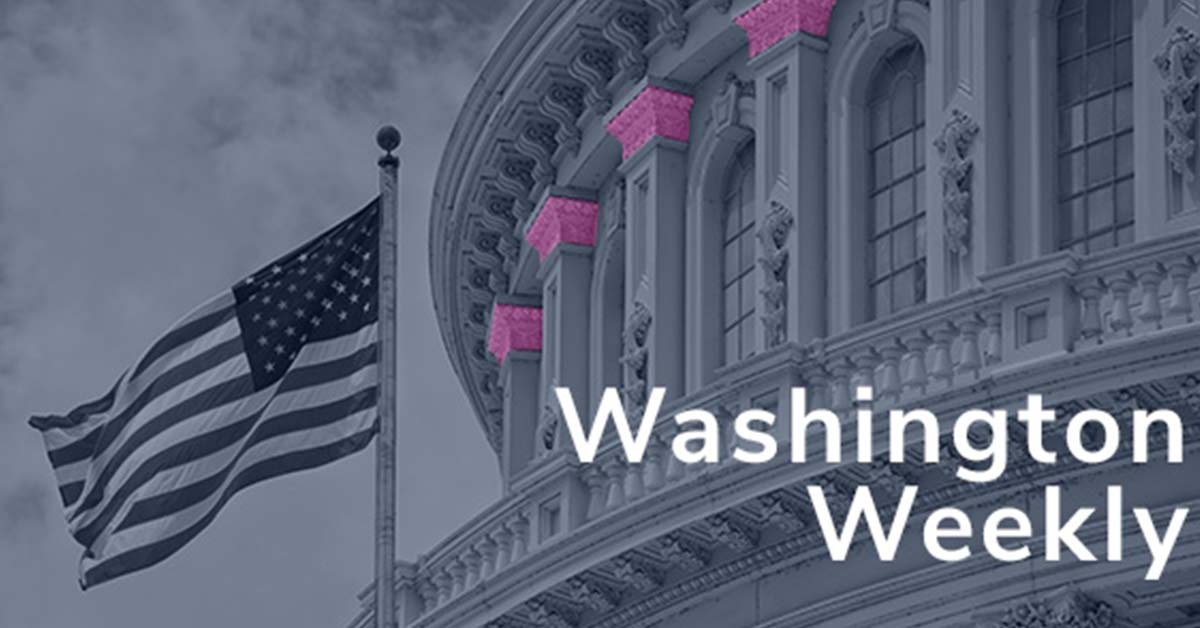
The Administration
We have a deal! Last week, President Biden and a bipartisan group of Senators announced that an infrastructure package had finally been agreed upon. The plan outlines $579B in new spending, with a total price tag of $1.2T over eight years, for traditional infrastructure investment.
Specifically, $312B is allocated for transportation infrastructure, including $25B for airports and $15B for electric vehicles, buses, and transit. The plan also delineates $266B for other infrastructure, including $65B for broadband. It would be paid for by a series of financing mechanisms that do not raise taxes, such as increasing IRS enforcement, leveraging several infrastructure bonds, and repurposing certain unspent COVID-19 relief dollars (something the White House had previously balked at).
President Biden jeopardized the deal just days after its announcement by stating that he would only sign it if it were passed in conjunction with a larger, Democrat-only reconciliation infrastructure package. The White House has since walked back those comments and the deal appears to be holding.
The shifting messaging reflects how both parties have complicated Biden’s ability to negotiate a bipartisan agreement. Progressives are wary that bipartisan negotiations will compromise too much on climate change reform, which is why Senate Majority Leader Chuck Schumer (D-NY) and House Speaker Nancy Pelosi (D-CA) have expressly tied the deal to the broader reconciliation package. In response, Senate Minority Leader Mitch McConnell (R-KY) and other Senate Republicans are calling out Democrats for this move and are threatening to withhold support if the dual-track plan gains steam.
The House
As President Biden pursues votes for the bipartisan infrastructure plan in Congress, House Democrats will move forward with highway, transit, rail, and water infrastructure legislation. Though the deals overlap with White House plans on many fronts, the House will move ahead to consider its legislation as the September 30th transportation reauthorization deadline approaches.
Additionally, the House Appropriations Committee will meet this week to mark-up FY22 IRS funding legislation. The bill aims to meet President Biden’s request to increase the IRS budget in hopes that additional resources will support better tax enforcement, thus creating more tax revenue.
The House Oversight and Reform Subcommittee for Government Operations will conduct a hearing on the status of State and Local information technology after the pandemic. The House will also consider H.R. 2471, directing the State Department to prioritize support for Haitian freedom of the press, anti-corruption initiatives, civil liberties, human rights, and disaster recovery. The measure passed the House Foreign Affairs Committee in April.
The Senate
The Senate has a light week ahead of the July 4th holiday, with only a pro forma session scheduled on Monday June 28th. Much of its work will be done behind closed doors as members work with the Biden Administration to draft bill language for the bipartisan infrastructure deal and the upcoming budget plan.
Sen. Joe Manchin (D-WV), a member of the bipartisan infrastructure working group, expressed his support for a Democrat-only reconciliation package if Republicans continued to oppose reforming the tax code, but only if its spending were capped at around $2 trillion.
Senate Finance Committee Chairman Ron Wyden (D-OR) is set to release his capital gains bill that would impose an annual tax on assets regardless of whether they are sold. The plan aligns with the Biden Administration’s overall goal of closing the tax gap between low-income Americans and high-wage earners who have a relatively low tax burden thanks to their amassed assets.
Becker’s Federal Lobbying Team will continue to monitor these developments as they evolve and will share with you as soon as information becomes available.